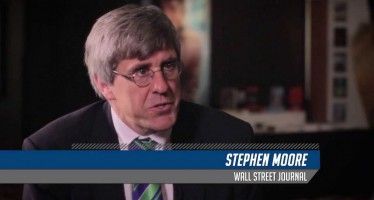SD's Chance to Erase Pension Abuse Image
APRIL 5, 2011
By STEVEN GREENHUT
The city of San Diego has long been the poster child for pension abuse, but now it has a chance to become the poster child for pension reform thanks to a new ballot measure advocated by Councilman Carl DeMaio and backed by the Lincoln Club of San Diego.
Here is a quick refresher course on the bad-old pension days in that city. As attorneys Robin Bergen and Shawn Chen succinctly explain it, “In 2004, the SEC investigated San Diego’s employee pension fund and discovered that city officials had allegedly used creative accounting to make it appear as if the pension fund was in better shape than was truly the case.” This City Beat article from 2005 explains the gritty details of the city’s pension scandal. The even bigger scandal was revealed in a report last year, which revealed that the city’s top 10 pension recipients will receive nearly $62 million in pensions in the next 25 years.
But now city officials are championing a measure that seems to be the most far-reaching initiative that I’ve seen. The measure puts new employees on a 401/k-style plan and it includes firefighters and lifeguards — two groups that are among the nation’s biggest pension recipients and abusers. Unfortunately, police were not included in the new program — no doubt a savvy political move, but one that leaves a big problem unfixed. Still, including the usually untouchable firefighters, despite their $175,000 compensation packages and massive pension-spiking gimmicks, is a huge step forward. And I bet you’re surprise to learn that lifeguards are eligible for these enormous deals as early as age 50.
Furthermore, the proposal ends some of the worst pension-spiking gimmicks by basing pensions on base pay rather than on the inflated formulas that public employees use to enhance their lifetime pension benefits. The initiative would cap a worker’s pensionable pay — allowing employees to gain pay increases while limiting what those increases will mean for pension payouts.
The city and employees would split contributions, thus ending the absurd situation whereby taxpayers pay the employee’s contribution as well as the employers’ contribution. The initiative would strip pensions from Mafia cops and others convicted of job-related felonies. Death and disability benefits — so thoroughly abused, as majorities of public safety workers discover disabilities almost exactly a year from retirement (irritable bowel syndrome, knee pains, back aches, etc.) — would be handled as an insurance matter rather than as an entitlement borne by taxpayers. And, per the Union Tribune report, the charter would be changed so city workers would not have to vote on benefit reductions.
This is serious, sensible reform, which advocates believe will save $363 million over five years. That’s significant, given that the Union Tribune explains, “The city’s $2.1 billion shortfall in money needed to pay promised pensions requires ever-increasing annual payments that leave officials with little room to maneuver financially.” Obviously, something has to be done to save the city services being plundered to enrich a small class of workers and city taxpayers who must foot this bill — even as they retire on far less.
I expect the emotional ads (firefighters rescuing people, etc.), but let’s hope San Diego voters remember that they can’t afford such generosity any longer. I hope advocates make the case that this is a fairness issue, also, and one that effects the quality of public services.
Fortunately, the two sides of reformers were able to agree on a compromise so there won’t be competing initiatives. San Diego could revive its reputation as a well-managed, conservative-minded city if this gets on the ballot and approved by voters.
Related Articles
Meet Blakeslee, The New Swing Vote
SEPT. 9 2010 By ANTHONY PIGNATARO Anyone watching the Cal Channel’s broadcast of the Aug. 31 Senate budget hearings saw
Video: Is cap and trade good policy for CA?
Writer Stephen Moore, formerly of the Wall Street Journal, discusses how California’s energy policy is driving businesses out of the
San Bernardino attacks shape presidential race
Presidential candidates in both parties have found challenges and opportunities in responding politically to the recent terrorist attacks in San




